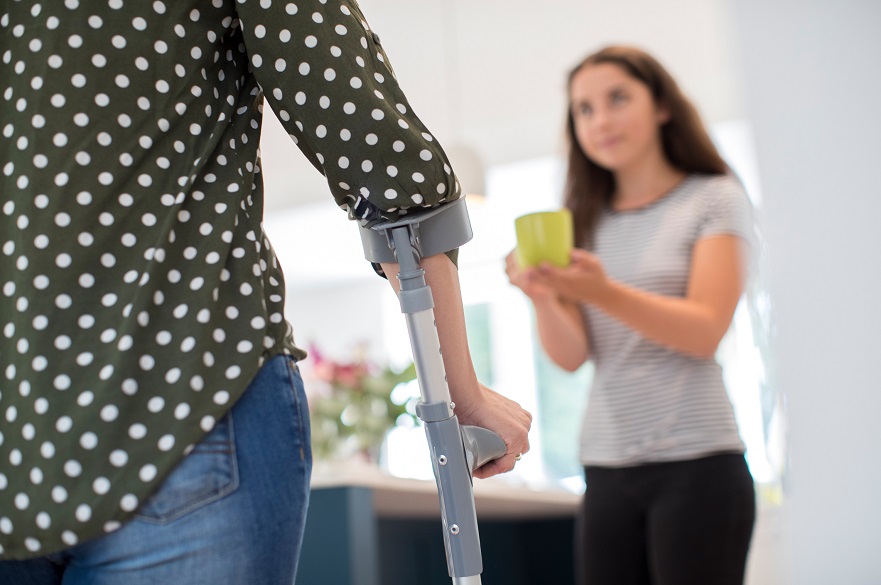Expert blog: Helping young carers to tackle loneliness through access to higher education
As this year’s Young Carers Day focuses on tackling isolation, Dr Louise Oldridge discusses the importance of access to higher education for young adults who often face barriers due to their caring responsibilities.
By Helen Breese | Published on 16 March 2022
Categories: Press office; Research; Nottingham Business School;

Working in higher education I am aware of the impact caring can have on the lives of young carers and their study. Young adult carers are defined as those aged 16-25 who provide unpaid care for an adult family member or friend.
There are more than 376,000 young adult carers in the UK and transitioning to university, and beyond, can be challenging, and for some a barrier to accessing higher education.
Research has found that although young adult carers can gain a range of skills through caring and it may inform their subject(s) of study, it can affect their health and social life, with 45% reporting it had affected their mental health.
Juggling caring and education can also cause stress, with 29% having dropped out of college/university due to their caring responsibilities. This figure is four times greater than the national average.
We do not know the exact number of carers at university, particularly as the current UCAS form does not ask students about caring responsibilities, but their website does suggest referring to caring in personal statements, highlighting skills development. Young carers may face restrictions in accessing opportunities, but we know the transformative effect of education, highlighted by NTU’s strategy to create opportunity and empower people. Recent research carried out during COVID-19 pointed to the role of education settings as a sanctuary and in helping to tackle isolation.
I would encourage carers studying at university to get in touch with their student support services team to discuss support available to them, which could include academic and financial help, alongside health and wellbeing support. If you are a young adult carer studying at Nottingham Trent University you could talk to your academic mentor, and can find details of support available on the StudentHub.
Carers that are wondering if they could study at university and next steps could review advice that UCAS sets out, including finding out what support is available at the universities they are interested in; telling institutions about their caring role; consider using their UCAS statement to highlight skills developed through caring; and think about the logistics of going to university, such as travel and financial implications.
There is limited information about the experiences of young adult carers transitioning into higher education and beyond. I am currently working on a project seeking to understand the experiences of young adults (aged 18 – 25) who are caring for dependent adults whilst studying (at Nottingham Trent University or other UK higher education institutions), with a view to understanding how caring has impacted higher education and career choices and seeking to understand the best modes of support across the student life cycle.
If you are aged 18-25, are currently (or have previously been) caring for (or looking after/helping) an adult family member or friend and are currently studying at a UK university you might be interested in taking part in a research interview. Doing so would provide an opportunity to have your voice heard, add to understanding of the key experiences and issues affecting student carers, and inform support requirements. As research has highlighted, the voices of young adult carers are pivotal in understanding the impact of caring, in research and policy development.
By Dr Louise Oldridge, senior lecturer in Human Resource Management, Nottingham Business School
Please email: louise.oldridge@ntu.ac.uk
Twitter: @droldridge
Instagram: @youngadultcarersresearch
#YoungCarersActionDay tag @CarersTrust
Young Carers Action Day is organised annually by the Carers Trust to raise awareness of young carers and young adult carers, calling for more recognition of the contribution they make, challenges they face, and seeking more support.